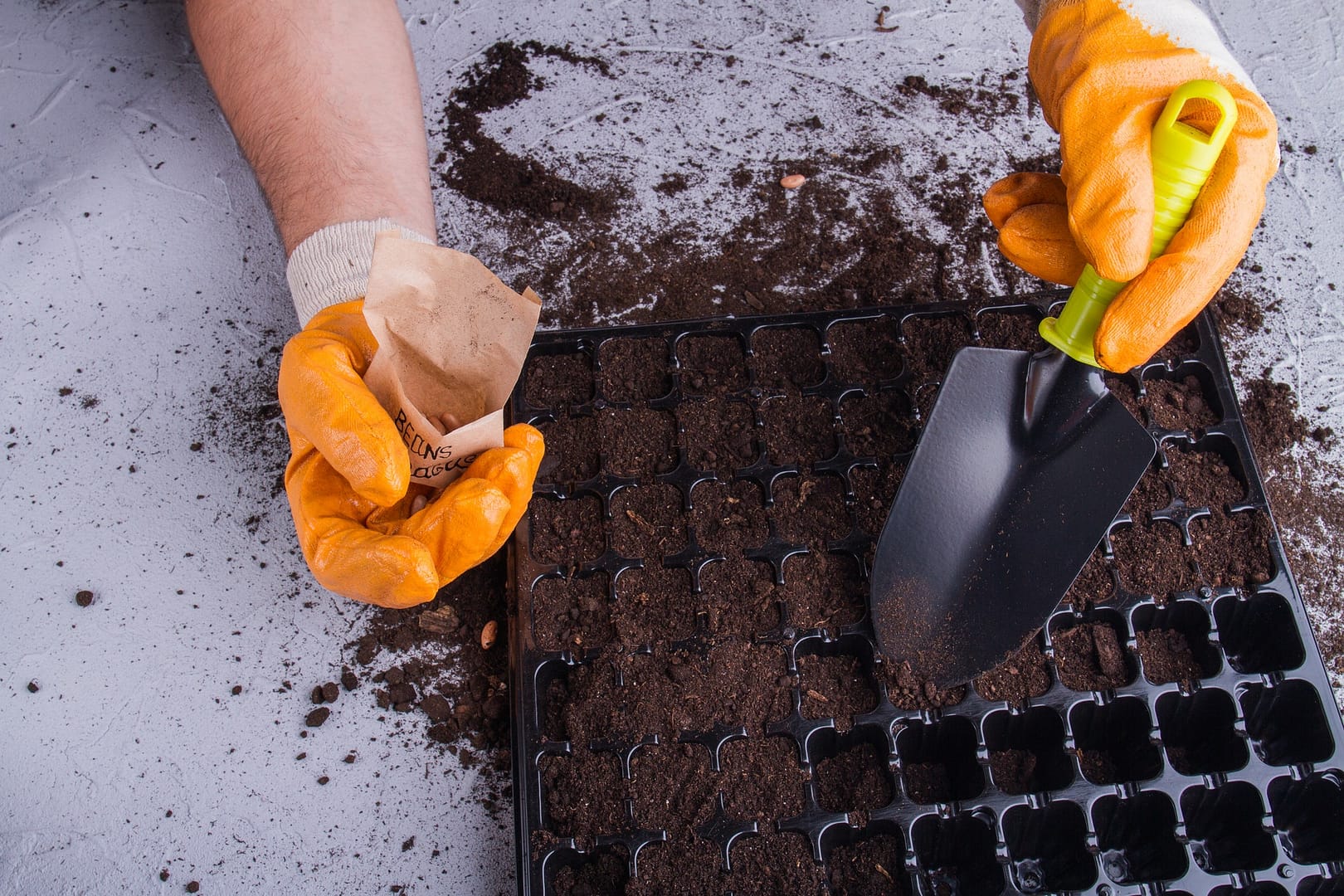Urban Farming in Dallas
Interested in getting involved in urban farming in Dallas? Urban farming is a sustainable way to grow your own food right in your backyard. Dallas is embracing urban agriculture with community gardens and rooftop farms, thanks to the support of the Urban Agriculture Action Team and the City Council.
This movement not only provides access to locally grown food but also contributes to a greener and more economically vibrant city. Join the urban farming revolution and enjoy the fruits of your labor!
Key Takeaways
Interested in participating in urban farming in Dallas? Urban farming offers a sustainable way to grow your own food in your backyard. Dallas is embracing urban agriculture by supporting community gardens and rooftop farms through the Urban Agriculture Action Team and the City Council.
This movement not only provides access to locally grown food but also contributes to a greener and more economically vibrant city. By joining the urban farming revolution, you can enjoy the fruits of your labor!
Urban Farming Opportunities in Dallas
In Dallas, there are various urban farming opportunities to explore. These include community gardens, rooftop farms, and urban agriculture initiatives.
These opportunities not only help the local food system but also encourage community engagement and sustainability.
Community gardens allow residents to grow their own produce, creating a sense of ownership and connection to the food they consume.
On the other hand, rooftop farms provide innovative solutions for efficiently using urban space and promoting local food production.
Urban agriculture initiatives in Dallas are crucial in supporting and expanding urban farming efforts, creating a network of support for community members interested in participating.
Embracing urban farming can enhance food security, foster a sense of community, and promote a sustainable and healthy lifestyle for Dallas residents.
Choosing the Right Crops for Urban Farming
Choosing the right crops for urban farming in Dallas depends on the climate, soil conditions, and local market demands. Prioritize crops such as leafy greens, herbs, and specific root vegetables that are in high demand locally. Opt for crops with shorter growing seasons to align with Dallas's climate and reduce the risk of crop loss due to extreme weather conditions.
Consider cultivating high-value crops like microgreens and specialty herbs, which can fetch premium prices in local markets, thereby enhancing the profitability of your urban farm. By focusing on these factors, urban farmers can ensure the success of their locally grown produce in Dallas and meet the demands of the local market.
This sets the stage for delving into the essential tools for urban gardening.
Essential Tools for Urban Gardening
Urban gardening requires some careful planning, especially when it comes to dealing with limited space. Container gardening basics and space-saving vertical gardening are essential techniques for urban gardeners.
These methods allow you to make the most of your space and cultivate a diverse range of plants. By integrating these strategies, you can effectively manage your available space and establish a flourishing urban garden.
Container Gardening Basics
When you start container gardening in your city space, you'll need some basic tools. These include pots, soil, seeds, and a watering can.
When setting up your urban garden, it's important to choose the right size pots with proper drainage to prevent waterlogging and root rot. Additionally, use high-quality potting mix suitable for the specific plants you intend to grow, as urban environments often lack fertile soil.
Investing in a good watering can with a narrow spout is also essential for precise watering and to avoid water wastage.
These tools are crucial for growing food in an urban garden, supporting self-sustainability and promoting healthier living in urban environments.
Space-Saving Vertical Gardening
If you have an urban farm in Dallas, you can start by using vertical gardening to save space and grow plenty of produce.
Vertical gardening is a practical solution for urban farming in Dallas, where space is limited. By using vertical space, you can grow various fruits, vegetables, and herbs while saving valuable ground space.
Consider incorporating hydroponics, a clean and efficient way to garden using water and nutrients to grow superior crops without soil. This method not only maximizes space but also promotes safety by reducing the need for chemical fertilizers and pesticides.
Dallas Urban Farms offers solutions for residential use, empowering individuals to grow their own nutritious and delicious food at home while supporting local food production and promoting sustainability in urban areas.
Understanding Dallas's Climate for Farming
Understanding the agricultural zones and farming season in Dallas is crucial for urban farming. This knowledge helps in selecting suitable crops and growing methods for the area.
It also guides the planting and harvesting schedules for maximum productivity.
Dallas's Agricultural Zones
Understanding the climate for farming in Dallas involves considering its agricultural zones and their suitability for different crops. Here are three important points to grasp about Dallas's agricultural zones:
- Variety of Growing Conditions: Dallas County has a diverse range of growing conditions, from the Blackland Prairie to the east to the drier climate in the west. It's essential to understand these variations for successful crop selection.
- Crop Adaptability: Certain crops, like melons and tomatoes, thrive in Dallas's warmer climate, while others, such as lettuce and spinach, are better suited to cooler conditions. Farmers must adjust their crop selection based on the specific agricultural zone they're working within.
- Local Knowledge: Local farmers have valuable insights into the nuances of Dallas's agricultural zones. Collaborating with them and leveraging their expertise can significantly enhance the success of urban farming initiatives in the area.
Farming Season in Dallas
When farming in Dallas, it's important to consider the impact of the climate on the growing season for successful urban agriculture. Understanding the unique climate of North Texas is crucial for planning the farming season. Dallas has a subtropical climate with hot summers and mild winters, offering a longer growing season. This allows urban farmers to grow and sell a variety of crops. However, challenges such as Winter Storm Uri and the ongoing pandemic have highlighted the need for resilient farming practices. For instance, the table below shows the typical planting and harvesting times for key crops in Dallas:
| Crop | Planting Time | Harvesting Time |
|---|---|---|
| Leafy Greens | September | April |
| Tomatoes | March | June |
| Peppers | April | August |
Understanding the farming season in Dallas is crucial for food security, public health, and the success of urban agriculture initiatives. Transitioning into the subsequent section about 'community support for urban agriculture,' it's important to recognize the significance of collaborative efforts in sustaining urban farming.
It's crucial to understand the farming season in Dallas to ensure a continuous supply of fresh produce and support for local communities. This knowledge can also help urban farmers plan their crops effectively, contributing to a more sustainable and resilient food system.
Community Support for Urban Agriculture
Urban agriculture initiatives in Dallas receive robust support from local communities. This support plays a pivotal role in promoting sustainable and accessible food production for all residents. Here's how this support manifests:
1) Community Gardens: Neighborhoods in Dallas are actively creating community gardens. These gardens provide access to fresh produce and foster a sense of community and cooperation among residents.
2) Educational Programs: Various organizations in Dallas offer educational programs about urban farming. These programs educate residents about sustainable practices, clean energy, and the importance of addressing food deserts.
3) Partnerships: Collaborations between local businesses, nonprofits, and government entities are forming to support urban agriculture in Dallas. This network of support and resources is crucial for those involved in the movement.
This community support not only promotes healthy and sustainable living but also fosters a sense of unity and empowerment among Dallas residents. However, despite these positive aspects, there are still challenges to overcome in order to further advance urban farming initiatives in Dallas.
Overcoming Urban Farming Challenges
Urban farming in Dallas presents several challenges. However, there are practical ways to overcome them.
One effective approach is to engage with the local community and seek support from existing urban agriculture initiatives. By doing so, you can gain access to valuable resources and knowledge.
Additionally, collaborating with local organizations that address similar challenges can provide increased support and access to funding opportunities.
These strategies not only help in overcoming urban farming challenges but also contribute to providing safer and more sustainable urban farming practices in Dallas.
It's crucial to collaborate with the community and leverage existing initiatives to navigate these challenges effectively.
Sustainable Practices for Urban Farming
Urban farming in Dallas faces challenges that require sustainable practices focusing on resource conservation and environmental stewardship. Here are three crucial sustainable practices for urban farming in Dallas:
- Urban Farming Techniques: To optimize space and increase crop yield, consider exploring vertical gardening, hydroponics, and permaculture.
- Soil Health: Maintain soil fertility and structure by using composting, cover cropping, and crop rotation, which reduces the need for synthetic fertilizers.
- Water Conservation and Pest Management: Minimize water usage and control pests without harmful chemicals by employing drip irrigation, rainwater harvesting, and integrated pest management strategies.
Frequently Asked Questions
What Is the Dallas Urban Ag Plan?
The Dallas Urban Ag Plan aims to increase community engagement and food security through sustainable urban agriculture. This plan supports economic impact by promoting local food production and distribution while addressing hunger and food insecurity. By implementing this policy, Dallas can work towards enhancing the availability of fresh, locally grown produce and improving access to nutritious food for all residents. This is crucial for creating a healthier and more sustainable city for everyone.
What Are Examples of Urban Farming?
In need of urban farming examples? Urban farming includes rooftop gardening, community gardens, vertical farming, and hydroponic systems. These methods are vital for promoting sustainability and providing fresh produce to local communities. For instance, rooftop gardening utilizes underutilized space in urban areas, while hydroponic systems efficiently use water to grow plants. Community gardens also foster a sense of community and provide access to fresh, locally grown produce. These urban farming methods play a crucial role in addressing food security and promoting sustainable practices in cities.
Is It Possible to Farm in an Urban Area?
Yes, you can farm in urban areas using sustainable practices and available space. Community involvement is crucial for success. Urban farming provides environmental benefits by reducing food transportation and promoting local, fresh produce. Additionally, it fosters a sense of community and encourages healthy eating habits. For example, rooftop gardens and community gardens are excellent ways to utilize urban space for farming, allowing city dwellers to access fresh, locally grown produce without relying on long-distance transportation. This not only reduces carbon emissions but also supports a more sustainable and eco-friendly food system.
Can You Make a Living off Urban Farming?
Urban farming can be a sustainable and profitable career choice. By meeting market demand and using sustainable practices, individuals can create multiple income streams in urban areas. While there may be challenges, urban farming offers a fulfilling and viable livelihood.






